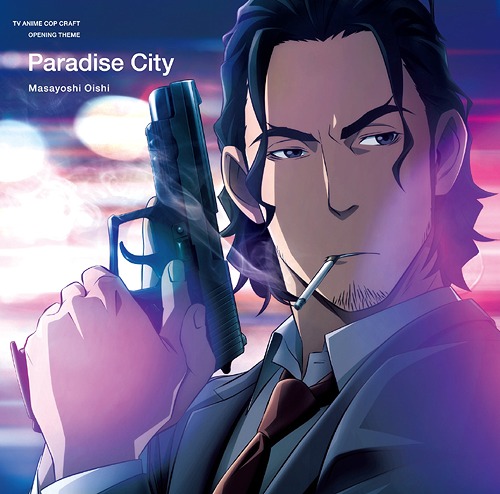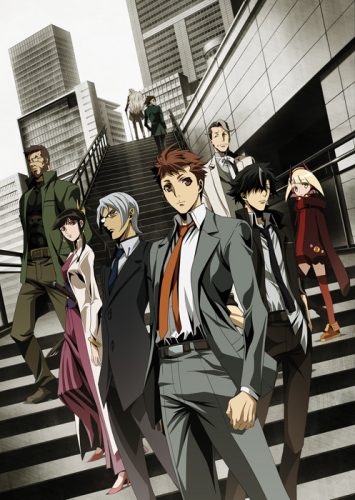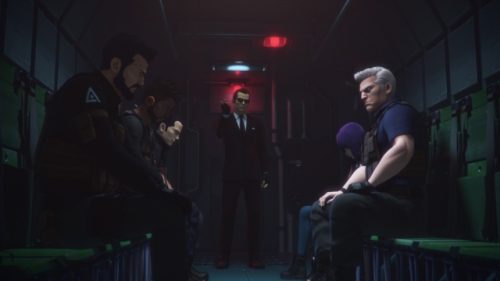
In recent weeks, the world has mourned and demonstrated in response to the losses of George Floyd, Breonna Taylor, and many innocents shot to death by police officers. When we say the world, many nations have been demonstrating for police reform, and for Black Lives Matter. When demonstrations started in the US, native Japanese and foreign residents went to the streets in Tokyo’s trendy Shibuya district to protest police brutality after a video of officers beating a Turkish Kurd was posted on social media.
However, the situation doesn’t end there. During these demonstrations in the US, numerous demonstrators were also shot at (with rubber bullets) by riot police thus further cementing their cause. As a result, the show COPS, which has been on the air for over 30 years, has finally been canceled along with Live PD. But with the cancellation of these shows, it makes us wonder, should anime licensors hold back on cop related titles?
Themes of Prejudice

At this point, nobody can deny that law enforcement and prejudice mix are a bad combination, and this is actually displayed in recent police anime such as Special 7: Special Crime Investigation Unit (Tokunana) and Cop Craft. While Japan is largely a homogenous society with a 2% foreign population, it doesn’t mean that Japanese media isn’t equipped to deal with portraying such themes. Tokunana gets around this by having creatures from fairy tales such as elves, vampires, and witches be a part of Japanese society, and you see how law enforcement has to approach these individuals.
Cop Craft takes place in a fictional Southern California and like Tokunana, mankind coexists with creatures of fantasy. The anime shows how people and those on the police force have negative feelings towards them, and through Kei, the main character, you see he has his reservations due to his experiences but he learns to overcome his prejudices and solve the case. Through Tokunana and Cop Craft, we see portrayals of police and how they interact with minorities. While it isn’t as extreme as what has been happening in real life, we can’t deny that with recent events, anime with such themes can instantly be difficult to watch, and a possibility as to why police-related anime should not be licensed.
Police Corruption

Police corruption in the US is one thing, but if there is one thing that anime does little to nothing to point out is how police corruption operates in Japan. Thanks to Carlos Ghosn’s detainment between 2018 and 2019, the world now has a better idea of what it’s like to be in custody in Japan (disclaimer: by no means is Honey’s Anime supporting Carlos Ghosn and him fleeing Japan). There are no Miranda Rights, Habeas Corpus, no right to have an attorney present during questioning, and the police are abusive to suspects until they get them to confess. In case you didn’t know, Japan has a 99%+ conviction rate, and these convictions are based on signed confessions, which many legal experts in Japan and around the world feel are coerced.
If you have seen the anime or played the original Persona 5 game, this is portrayed through Ren when he is in custody. You see him being questioned by the police and a prosecutor without any attorney or legal guardian present. While being questioned without an attorney present has been proven to be true in Japan, we can’t exactly comment on whether or not a minor can be questioned in Japan without a parent or legal guardian present. But considering what happened with Ghosn, we can only guess as we are not experts on Japanese law. However, Persona 5 isn’t about the police, but about a group of teenage rebels going against a system that failed them, but it still assists in emphasizing Japan’s questionable conviction rate.
Government Failure

With the police being a sanctioning government body, we see the failure of some of our law enforcement officers to be a failure of our governments from the municipal level, to the national level. This is largely portrayed through almost every installment of Ghost in the Shell. Like some police units in the US, Section 9 is given access to military-grade technology as they fight terrorism in both the digital and analog world. Section 9 deals with not only fighting crime, but also addresses the image of the police and government, and prejudice.
As the recent SAC_2045 Netflix series deals with class warfare, you see the Major and her crew work as mercenaries for the one-percenters. Midway through the series, this is counteracted when Batou helps a group of senior citizens rob a bank (however, there were justified reasons for this). Considering Ghost in the Shell’s well-rounded approach with dealing crime on all levels (as in fighting terrorism and corruption), we say this is a good example in anime portraying police in a positive light, and why this show should go on.
Final Thoughts
We understand that this is a very sensitive topic, but we are living in volatile times. This goes beyond cancel culture. We understand that fans of anime, manga, or Japanese pop culture as a whole come from every background. While Japan isn’t as diverse as the US, Canada, and Europe, we have seen anime effectively address prejudice in its own distinguishing way. Like many societies, it’s reasonable that Japan places respect on public servants such as teachers, firefighters, and police officers (looking at you Kochikome).
While many people are intrigued with how Japan can be one of the safest countries in the world (with a high conviction rate), it’s pretty obvious that it can’t be all sunshine and rainbows. Japan operates in a way that wouldn’t work in other countries that would lead to the charges being dropped. We aren’t saying that all police officers around the world are bad, all we ask is for police reform and that rights granted by any constitution be enforced.
While we don’t anticipate licensors to halt releasing anime shows that portray police officers, we feel the anime industry can do better in addressing reoccurring and questionable issues. Suo Masayuki, director of Shall We Dance, did a movie about the questionable conviction rate through his other hit film, I Didn’t Do It. We feel that anime in the near future can help address these issues. We don’t expect them to be made overnight, but with what’s going on, someone in the industry can help inform Japan and the world what’s going on over there. With COPS and Live PD being documentary shows as opposed to being dramas such as Law & Order, we don’t see police anime going anywhere any time soon as many titles do a great job of addressing the internal and external problems of any police force around the world. In the end, we respect Black Lives Matter and we hope that this paves the way for reform in law enforcement.

